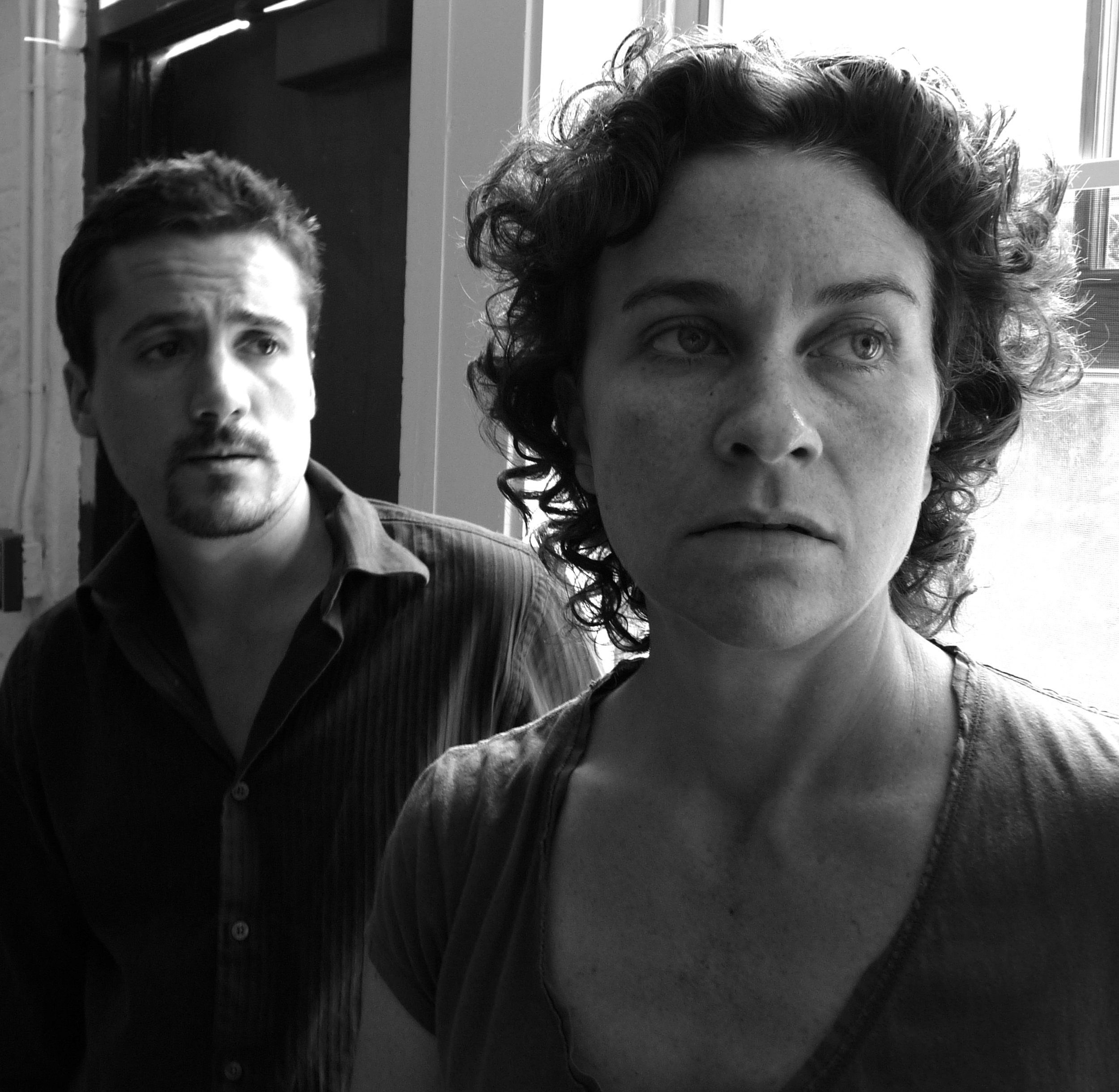Ever have that experience where you feel almost taken hostage by your host? Sorta like a “guestage?” That’s the situation facing Tom (James Leaf) and Diane (Mariah Sage), two teachers—a prof, she earns twice his salary, he’s only a poet and high school teacher—who have car troubles on a road-trip. When we meet them they’ve been brought to the home of Ivan (Daniel White) and Ruth (Irina Kaplan), husband and wife—he, big, burly, effusively and physically friendly; she, kittenish and confiding—after an afternoon of drinks at a roadhouse.

Ivan is the sort of host who thrives on some hopped-up idea of copacetic encounters, looking for openings and outpourings. Ruth just seems ecstatic at having some longed-for company even if she’s shy about playing the hostess (it means having to cook and clean, y’know). We can tell that days on the road seem to be exposing the faultlines in Tom and Diane’s relationship, while Ivan’s status as a member of a Special Operations Unit—a military mercenary, in other words—and Ruth’s as an ex-stripper make them, one would imagine, interesting interlocutors for two teachers at large.
If the idea of two couples downing vast amounts of liquor and talking, squabbling, confessing, and flirting far into the night makes you recall George and Martha hosting Nick and Honey, that’s fitting enough, since this kind of theatrical evening probably dates—in its sense of unspecified unease—from Albee’s play of the early Sixties, but Steven Bellwood’s play, directed by James Leaf, is far less arcane in the kinds of “games” going on, though one is never quite sure, with Ivan, if or when his sense of grievance might turn into something ugly. Nor, for that matter, Diane’s, who seems to play with the idea of, Martha-like, exposing her partner’s frailties.
Tom, the less developed character here, has a tendency to crib lines from Eliot or Shakespeare, and even taking a psilocybin mushroom doesn’t make him more loquacious, or interesting, for that matter. He’s sort of the witness more than anything, though Leaf gives him some fire when he tries to argue for Ivan's trustworthiness against Diane’s fears for Ruth’s safety. Kaplan’s Ruth is at times clueless but—as a former professional stripper—she also knows how to be tough and how to flaunt her sexiness. Ruth is given two pathetic moments, and that’s perhaps one too many—the first, in the first act, might recall “the bit about the kid” in Virgina Woolf, in an oddly literal way; the other precipitates the climax and comes a bit out of nowhere.
Bellwood seems to want to play on the educated classes’ discomfort with the less educated, a discomfort that can be protective, projective, and quite misguided. Ruth’s role in her marriage is stronger than Diane assumes it is, blinded by her own intimidation when faced with preachy Ivan, his domestic arsenal, his jokey Obama mask, and his “what you need is a real man” innuendo. Played by Daniel White with large-as-life gusto, Ivan is the live-wire here and our time in his home may make us uncomfortable, but he’s really just trying to have a good time. In the end, the others just aren’t up for it, particularly Diane who, as played by Sage, maintains a brittle sense of timid intelligence and a belief that others just aren’t as smart as she is. More could be done to express what we’re to make of her attachment to Ruth, but as it is, Diane is the character who stands to be changed most profoundly by what takes place.
The staging—all on one level in the first half, and with a provocative split between levels in the second—is surprisingly intimate given the large, multipurpose room at the Whitney Arts Center—and the cast swiftly establishes a naturalistic rhythm that gets us from awkward-but-well-meaning strangers meeting to exposures, both purposeful and unthinking, that make us worry where it’s all going.
The Specials is entertaining, suspenseful, and full of the kind of unease common not only to being strangers in a strange home, but also to being strangers in our own land.
“Who’s afraid of guns and drugs and the Big Bad Wolf, Martha?” “I am, George, I am.”
Three more shows: Friday and Saturday, Sept. 20 & 21, at 8 p.m. and Sunday, Sept. 22, at 3 p.m.
The Whitney Arts Center, 591 Whitney Avenue, New Haven
The Specials by Steve Bellwood Directed by James Leaf Produced and Assistant Directed by David Pilot
Cast: Mariah Sage, James Leaf, Irina Kaplan, Daniel White
Co-producers: Margaret Carl, Annia Bu, James Leaf, Steve Bellwood; Stage Manager: Beatrix Roller; Assistant Stage Manager, Set and Costume Designer: Lisette Lux; House Managers: Baileigh Rae Massey, John Roeller, Claire Gabriele; Publicity: Jane Mills



